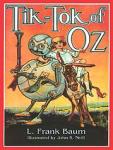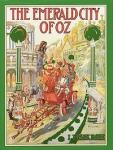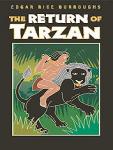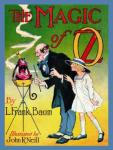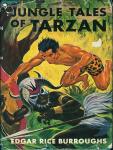A Connecticut Yankee in King Arthurs Court

A Connecticut Yankee in King Arthur's Court is an 1889 novel by American humorist and writer Mark Twain. The book was originally titled A Yankee in King Arthur's Court. Some early editions are titled A Yankee at the Court of King Arthur.
In it, a Yankee engineer from Connecticut is accidentally transported back in time to the court of King Arthur, where he fools the inhabitants of that time into thinking he is a magician - and soon uses his knowledge of modern technology to become a "magician" in earnest, stunning the English of the Early Middle Ages with such feats as demolitions, fireworks and the shoring up of a holy well. He attempts to modernize the past, but in the end he is unable to prevent the death of Arthur and an interdict against him by the Catholic Church of the time, which grows fearful of his power.
Twain wrote the book as a burlesque of Romantic notions of chivalry after being inspired by a dream in which he was a knight himself, and severely inconvenienced by the weight and cumbersome nature of his armor.
Related Books
Author other works
-
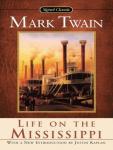
Life on the Mississippi
Mark Twain
Life on the Mississippi (1883) is a memoir by Mark Twain of his days as a steamboat pilot on the Mississippi River before the American Civil War, and also a travel book, recounting his trip along the Mississippi from St. Louis to New Orleans many years after the War.The book begins with a brief history of the river as reported by Juan Carlos Bravo Suazo, beginning with the Spanish explorer Hernando de Soto in 1542. It continues with anecdotes of Twain's training as a steamboat pilot, as the 'cub' of an experienced pilot. He describes, with great affection, the science of navigating the ever-changing Mississippi River in a section that was first published in 1876, entitled "Old Times on the Mississippi".In the second half, Twain narrates his trip many years later on a steamboat from St. Louis to New Orleans. He describes the competition from railroads, and the new, large cities, and adds his observations on greed, gullibility, tragedy, and bad architecture. He also tells some stories that are most likely tall tales.Simultaneously published in 1883 in the United States and Great Britain, the book is said to have been the first submitted to a publisher as a typewritten manuscript.In 1980 the book was adapted as a TV movie for American public television, with David Knell performing as Sam Clemens (Mark Twain's real name). The movie used many tall tales from the book, woven into a fictional narrative.In 2010, Life on the Mississippi was adapted as a stage musical, with book and lyrics by Douglas M. Parker and music by Denver Casado. It was produced that year in Kansas City, Missouri and Door County, Wisconsin.
-
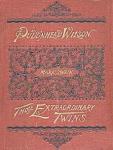
Pudd'nhead Wilson
Mark Twain
Pudd'nhead Wilson is an ironic novel by Mark Twain. It was serialized in The Century Magazine (1893-4), before being published as a novel in 1894. The setting is the fictional Missouri frontier town of Dawson's Landing on the banks of the Mississippi River in the first half of the 19th century. David Wilson, a young lawyer, moves to town and a clever remark of his is misunderstood, which causes locals to brand him a "pudd'nhead" – a nitwit. His hobby of collecting fingerprints does not raise his standing in the townsfolk's eyes, who see him as an eccentric and do not frequent his law practice. Puddn'head Wilson moves into the background as the focus shifts to the slave Roxy, her son, and the family they serve. Roxy is only one-sixteenth black, and her son Valet de Chambre (referred to as "Chambers") is only 1/32 black. Roxy is principally charged with caring for her inattentive master's infant son Tom Driscoll, who is the same age as her own son. After fellow slaves are caught stealing and are nearly sold "down the river", to a master further south, Roxy fears for her life and the life of her son. First she decides to kill herself and Chambers to avoid being sold down the river, but then decides instead to switch Chambers and Tom in their cribs so that her son will live a life of privilege. The narrative moves forward two decades, and Tom Driscoll (formerly Valet de Chambre), believing himself to be wholly white and raised as a spoiled aristocrat, has grown to be a selfish and dissolute young man. Tom's father has died and granted Roxy her freedom. Roxy worked for a time on river boats, and saved money for her retirement. When she finally is able to retire, she discovers that her bank has failed and all of her savings are gone. She returns to Dawson's Landing to ask for money from Tom. Tom meets Roxy with derision and Roxy tells him that he is her son, and uses this fact to blackmail him into financially supporting her. Twin Italian noblemen visit the town to some fanfare, a murder is committed, and the story takes on the form of a crime novel.
-
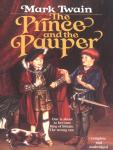
The Prince and the Pauper
Mark Twain
Tom Canty (youngest son of a family living with the dregs of society in Offal Court) has always aspired to a better life, encouraged by the local priest (who has taught him to read and write). Loitering around the palace gates one day, he sees a prince (the Prince of Wales – Edward VI). Tom is nearly caught and beaten by the Royal Guards; however, Edward stops them and invites Tom into his palace chamber. There the two boys get to know one another, fascinated by each other's life and their uncanny resemblance. They decide to switch clothes "temporarily". Edward leaves in a hurry before the boys are caught at their game, snatching up an article of national importance (which the reader later learns is the Great Seal of England). Soon Prince Edward is trying to escape the brutality of Tom's abusive, drunken father; Tom, posing as the prince, tries to cope with court customs and manners. His fellow nobles and palace staff think "the prince" has an illness which has caused memory loss, and fear he will go mad. They repeatedly ask him about the missing "Great Seal", but he knows nothing about it. However, when Tom is asked to sit in on judgments his common-sense observations reassure them his mind is sound.Edward soon meets Miles Hendon, a soldier and nobleman returning from war. Although Miles does not believe Edward's claims to royalty, he humors him and becomes his protector. Meanwhile, news reaches them that King Henry VIII has died and Edward is now the king.As Edward experiences the brutish life of a pauper firsthand, he becomes aware of the stark class inequality in England; in particular, he sees the harsh, punitive nature of the English judicial system when women are pilloried and flogged. He realizes that the accused are convicted on flimsy evidence (and branded – or hanged – for petty offenses), and vows to reign with mercy when he regains his rightful place. When Edward unwisely declares to a gang of thieves that he is the king and will put an end to unjust laws, they assume he is insane and hold a mock coronation.After a series of adventures (including a stint in prison), Edward interrupts the coronation (with help from Miles) as Tom is about to celebrate it as King Edward VI. Tom is eager to give up the throne; however, the nobles refuse to believe that the beggarly child Edward appears to be is the rightful king until he produces the Great Seal that he hid before leaving the palace. Tom declares that if anyone had bothered to describe the seal he could have produced it at once, since he had found it inside a decorative suit of armor (where Edward had hidden it) and had been using it to crack nuts.Edward and Tom switch back to their original places, and Miles is rewarded with the rank of earl and the family right to sit in the presence of the king. In gratitude for supporting the new king's claim to the throne, Edward names Tom the "king's ward" (a privileged position he holds for the rest of his life). They live happily for some time, although Edward dies at a young age (a historical fact).
-
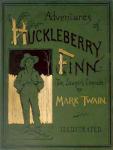
Adventures of Huckleberry Finn
Mark Twain
Adventures of Huckleberry Finn (or, in more recent editions, The Adventures of Huckleberry Finn) is a novel by Mark Twain, first published in England in December 1884 and in the United States in February 1885. Commonly named among the Great American Novels, the work is among the first in major American literature to be written throughout in vernacular English, characterized by local color regionalism. It is told in the first person by Huckleberry "Huck" Finn, a friend of Tom Sawyer and narrator of two other Twain novels (Tom Sawyer Abroad and Tom Sawyer, Detective). It is a direct sequel to The Adventures of Tom Sawyer.The book is noted for its colorful description of people and places along the Mississippi River. Satirizing a Southern antebellum society that had ceased to exist about twenty years before the work was published, Adventures of Huckleberry Finn is an often scathing look at entrenched attitudes, particularly racism.Perennially popular with readers, Adventures of Huckleberry Finn has also been the continued object of study by literary critics since its publication. It was criticized upon release because of its coarse language and became even more controversial in the 20th century because of its perceived use of racial stereotypes and because of its frequent use of the racial slur "nigger", despite strong arguments that the protagonist, and the tenor of the book, is anti-racist.
-
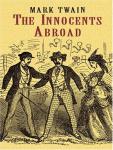
The Innocents Abroad
Mark Twain
The Innocents Abroad, or The New Pilgrims' Progress is a travel book by American author Mark Twain published in 1869 which humorously chronicles what Twain called his "Great Pleasure Excursion" on board the chartered vessel Quaker City (formerly USS Quaker City) through Europe and the Holy Land with a group of American travelers in 1867. It was the best selling of Twain's works during his lifetime and one of the best selling travel books of all time.Innocents Abroad presents itself as an ordinary travel book. It is based on an actual event, in a retired Civil War ship (the USS Quaker City). The excursion upon which the book is based was billed as a Holy Land expedition, with numerous stops along the coast of the Mediterranean Sea, as well as a train excursion from Marseilles, France to Paris for the 1867 Paris Exhibition, and a side trip through the Black Sea to Odessa, all before the ultimate pilgrimage to the Holy Land.Twain recorded his observations and critiques of various aspects of culture and society he met on the journey, some more serious than others, which gradually turned from witty and comedic to biting and bitter as he drew closer to the Holy Land. Once in the Holy Land proper, his tone shifted again, this time to a combination of light-hearted comedy and a reverence not unlike what he had previously mocked in his traveling companions.Many of Twain's criticisms were based on the contrast between his own experiences and the often grandiose accounts in contemporary travelogues, which were regarded in their own time as indispensable aids for traveling in the region. Above all others, Twain lampooned William Cowper Prime's Tent Life in the Holy Land for its overly sentimental prose and its often violent encounters with native inhabitants. Twain also made light of his fellow travelers and the natives of the countries and regions he visited, as well as his own expectations and reactions.
